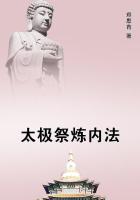So much for English opinion about America in August last. And now I will venture to say a word or two as to American feeling respecting this English opinion at that period. It will of course be remembered by all my readers that, at the beginning of the war, Lord Russell, who was then in the lower house, declared, as Foreign Secretary of State, that England would regard the North and South as belligerents, and would remain neutral as to both of them. This declaration gave violent offense to the North, and has been taken as indicating British sympathy with the cause of the seceders. Iam not going to explain--indeed, it would be necessary that Ishould first understand--the laws of nations with regard to blockaded ports, privateering, ships and men and goods contraband of war, and all those semi-nautical, semi-military rules and axioms which it is necessary that all attorneys-general and such like should, at the present moment, have at their fingers' end. But it must be evident to the most ignorant in those matters, among which large crowd I certainly include myself, that it was essentially necessary that Lord John Russell should at that time declare openly what England intended to do. It was essential that our seamen should know where they would be protected and where not, and that the course to be taken by England should be defined. Reticence in the matter was not within the power of the British government. It behooved the Foreign Secretary of State to declare openly that England intended to side either with one party or with the other, or else to remain neutral between them.
I had heard this matter discussed by Americans before I left England, and I have of course heard it discussed very frequently in America. There can be no doubt that the front of the offense given by England to the Northern States was this declaration of Lord John Russell's. But it has been always made evident to me that the sin did not consist in the fact of England's neutrality--in the fact of her regarding the two parties as belligerents--but in the open declaration made to the world by a Secretary of State that she did intend so to regard them. If another proof were wanting, this would afford another proof of the immense weight attached in America to all the proceedings and to all the feelings of England on this matter. The very anger of the North is a compliment paid by the North to England. But not the less is that anger unreasonable. To those in America who understand our constitution, it must be evident that our government cannot take official measures without a public avowal of such measures. France can do so. Russia can do so. The government of the United States can do so, and could do so even before this rupture. But the government of England cannot do so. All men connected with the government in England have felt themselves from time to time more or less hampered by the necessity of publicity. Our statesmen have been forced to fight their battles with the plan of their tactics open before their adversaries. But we in England are inclined to believe that the general result is good, and that battles so fought and so won will be fought with the honestest blows and won with the surest results. Reticence in this matter was not possible; and Lord John Russell, in ****** the open avowal which gave such offense to the Northern States, only did that which, as a servant of England, England required him to do.
"What would you in England have thought," a gentleman of much weight in Boston said to me, "if, when you were in trouble in India, we had openly declared that we regarded your opponents there are as belligerents on equal terms with yourselves?" I was forced to say that, as far as I could see, there was no analogy between the two cases. In India an army had mutinied, and that an army composed of a subdued, if not a servile race. The analogy would have been fairer had it referred to any sympathy shown by us to insurgent negroes. But, nevertheless, had the army which mutinied in India been in possession of ports and sea-board; had they held in their hands vast commercial cities and great agricultural districts; had they owned ships and been masters of a wide-spread trade, America could have done nothing better toward us than have remained neutral in such a conflict and have regarded the parties as belligerents. The only question is whether she would have done so well by us. "But," said my friend, in answer to all this, "we should not have proclaimed to the world that we regarded you and them as standing on an equal footing." There again appeared the true gist of the offense. A word from England such as that spoken by Lord John Russell was of such weight to the South that the North could not endure to have it spoken. I did not say to that gentleman, but here I may say that, had such circumstances arisen as those conjectured, and had America spoken such a word, England would not have felt herself called upon to resent it.
But the fairer analogy lies between Ireland and the Southern States. The monster meetings and O'Connell's triumphs are not so long gone by but that many of us can remember the first demand for secession made by Ireland, and the line which was then taken by American sympathies. It is not too much to say that America then believed that Ireland would secure secession, and that the great trust of the Irish repealers was in the moral aid which she did and would receive from America. "But our government proclaimed no sympathy with Ireland," said my friend. No. The American government is not called on to make such proclamations, nor had Ireland ever taken upon herself the nature and labors of a belligerent.
That this anger on the part of the North is unreasonable, I cannot doubt. That it is unfortunate, grievous, and very bitter, I am quite sure. But I do not think that it is in any degree surprising. I am inclined to think that, did I belong to Boston as I do belong to London, I should share in the feeling, and rave as loudly as all men there have raved against the coldness of England.















